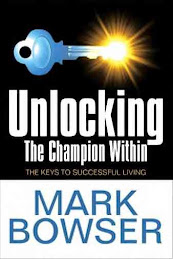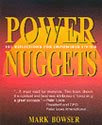By Mark Bowser
“Congress shall make no law…” so begins the first amendment to the United States Constitution. What does that mean and why were the Founding Fathers so adamant to including a Bill of Rights to the Constitution? The Declaration of Independence and the U.S. Constitution are two of the most impressive and important governmental documents ever written because they put the focus where it needs to be—The People. This country was founded on the foundation that the people lead the way, not the government. The government exists to serve the people not the other way around.
The Founding Fathers put guarantees into the Constitution to make sure the people lead the way. They called it the Bill of Rights. The Bill of Rights is the first ten amendments to the Constitution. These ten rights are the basis of America. They are the fundamental difference between this great land of ours and some of the awful dictatorships, Communist regimes, and other tragedies in world history.
Today, we are going to reacquaint ourselves to one of those pivotal amendments. Please join me for the next few moments as we take a deeper look at the first amendment and what it means for us, our families, our work, and America.
The first amendment says, “Congress shall make no law respecting an establishment of religion, or prohibiting the free exercise there of; or abridging the freedom of speech, or of the press; or the right of the people peaceably to assemble, and to petition the Government for a redress of grievances.”
Let’s take a look at this amendment step by step and see what it
means. The first part talks about religion. What did the Founders really mean? Well, the first part of the amendment means that Congress can’t set up a state religion. Our country was founded on religious freedom. The first Americans started migrating across the great ocean because of religious persecution. They did not want to be a part of the State Religion – The Church of England.
So, when it came time to start this country, they wanted a guarantee that this persecution would not happen again. The amendment also says, “'or prohibiting the free exercise there of…” The Founders wanted to insure that the government also would not get involved with how a religion was to be carried out in daily life. You might be saying, “Ah, the separation of church and state.” Now, let me say something that might shock you. The Separation of Church and State philosophy is not found anywhere in the Constitution. In fact, it goes against the intent of the Founding Fathers. “What?” You might say. “I was never taught that!” I know. The way the press and the liberal educators preach it so much one would think it was written in the amendment itself.
The phrase “Separation of church and state” is not in the Constitution. It is found in a letter that Thomas Jefferson wrote. It was only a letter. It was not an agreed upon philosophy of the Founders. When discussing the Founding Fathers, respected historian Paul Johnson says, “Even the doubting and the unenthusiastic were quite clear that religion was needed in society, especially in a vast, rapidly growing and boisterous country like America.” Even Jefferson believed religion was important. To prove this, all we have to do is read the Declaration of Independence, which he penned so beautifully.
Having said all this, what is government’s role in religion. The government’s role is to be tolerant and support the free practice of every faith. But it does not mean that government can’t be involved in religion. If that were the case then why does it say “In God we trust” on our money and why does the U.S. Senate have a chaplain? Paul Johnson says, “It certainly did not inhibit Congress from identifying itself with the religious impulse as such or from authorizing religious practices where all could agree on their desirability.”
The Founding Fathers saw religion and education as vital elements if this American experiment were to succeed. In fact, they saw them going hand and hand. They believed that an educated morally driven America was the best America. In confronting Tom Paine who did not see the need for religion, Benjamin Franklin wrote, “He who spits in the wind spits in his own face…If men are wicked with religion, what would they be without it?”
Religion and the free exercise of it was important to the Founders. So much so that the day after the First Amendment was passed, on September 25, 1789, The House of Representatives passed by a two to one majority a resolution calling for a day of national prayer and thanksgiving.
The next part of the First Amendment gives us the freedom of speech. Without this we cannot be free. Just ask anyone who lived in the old Soviet Union. Or ask those students in Communist China who confronted those tanks a few years ago. The right to speak up for or against our government gives us the free exercise of debate. America is strongest when with candor and politeness we can debate our differences. What unites us as Americans far outweighs what divides us. We grow stronger (and more free) when we take hold of the best ideas of all America.
Our next freedom found in the First Amendment gives us the freedom of the press. Without this freedom, you would not be reading this letter right now. We don’t have to agree with the press, but we must respect its freedom to print what it pleases. For example, there are many newspapers and magazines I don’t think are worth the paper they are printed on, but I will always fight for their right to express their ideas. Having said this, I think that with the birth of the internet, we as a nation are going to have to continue some strong debates on where we draw the line of freedom of speech and the press. For example, I believe that there is never an argument in support of child pornography whether it is found on the internet or somewhere else.
Our next freedom given us in the First Amendment is the “'the right of the people peaceably to assemble…” This means that we can gather together as a group for any purpose as long as it is done peaceably. The government can’t stop us from meeting together in clubs, organizations, or even protest marches. This freedom in a way brings the freedom of speech to its highest level---unity.
The last freedom found in the First Amendment is for justice. It reads, “'and to petition the Government for a redress of grievances.” It is our freedom to have wrongs committed against us made right. It is the freedom to not be taken advantage of. The freedom of fairness. The freedom of right and truth.
So, as we embark on our daily routine, I challenge each of us to be conscious of our freedoms as Americans. We must never take them for granted. We must never allow them to be watered down or stripped away, and we must never give them up. For as Thomas Jefferson said, “Eternal vigilance is the price of liberty.”
Tuesday, April 21, 2009
Subscribe to:
Post Comments (Atom)

.jpg)




.jpg)
.jpg)

No comments:
Post a Comment